The two sides of the Women’s World Cup — and the truth about where power still lies
The Women’s World Cup was a transformative tournament that showcased what is possible - but its legacy now relies on the decisions of those who have previously failed to support it, writes Miguel Delaney from Sydney

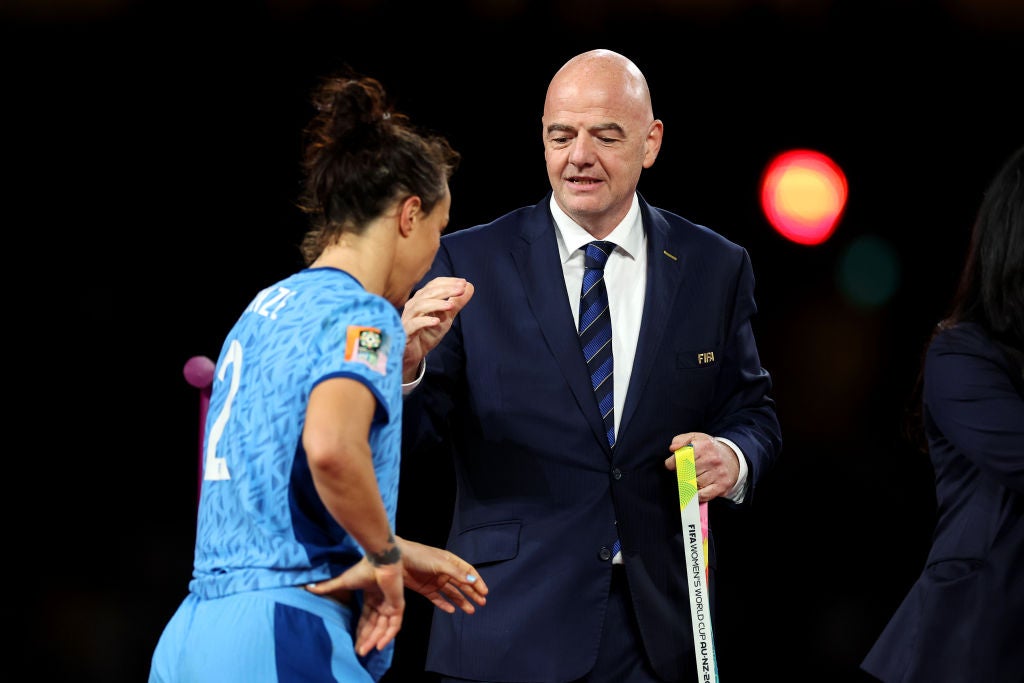
Your support helps us to tell the story
From reproductive rights to climate change to Big Tech, The Independent is on the ground when the story is developing. Whether it's investigating the financials of Elon Musk's pro-Trump PAC or producing our latest documentary, 'The A Word', which shines a light on the American women fighting for reproductive rights, we know how important it is to parse out the facts from the messaging.
At such a critical moment in US history, we need reporters on the ground. Your donation allows us to keep sending journalists to speak to both sides of the story.
The Independent is trusted by Americans across the entire political spectrum. And unlike many other quality news outlets, we choose not to lock Americans out of our reporting and analysis with paywalls. We believe quality journalism should be available to everyone, paid for by those who can afford it.
Your support makes all the difference.Surrounded by celebrations, an otherwise satisfied Alexia Putellas wasn’t going to completely let go - or let it go.
“It annoys me,” she said in the Stadium Australia mixed zone. You might call it the two sides of this Spain team, who have been beset by issues that also fittingly reflect the two sides of this World Cup. Putellas was certainly calling it that.
“This year has been an education for me,” she went on. “I have learned how this business is going”
One of the defining players in women’s football was at least going to turn towards this decisive issue, that framed the entire campaign.
“You’ve seen that the minute women’s footballers believe a little and are provided with basic facilities, everything comes out better,” Putellas said.
“It annoys me because it’s not just one country, it’s repeated. And Fifa have to take note. There are many countries who have spent time with disputes and they are disputes the players have made. That saps your energy when the player only wants to focus on training, looking after themselves, preparing properly and leaving everything on the pitch.”
That’s certainly what the Spanish players did. Through that, they were also vintage champions in how they reflected and brought together the prevailing trends of the game - from the tactics to the deeper tectonics. Olga Carmona’s supreme final goal may have separated them from England and the rest of the planet, but they had common cause with every other team.
Their football explains how and why this tournament has gone as it did. Spain are the new world champions because a brilliant generation of talent are now in their prime having come through the most sophisticated coaching infrastructure in the women’s game. England were directly influenced by that and then invested in Sarina Wiegman, which is why they got to the final. This is the way the women’s game is going, towards western Europe. The underwhelming USA team now know this all too well, as well as how the women’s game has now completely moved towards the technique of European academies.
And yet it is symbolic that even the teams from these wealthy football nations still went through similar issues to everyone else, from complaints over facilities to disputes over bonuses.
South Africa refused to play their last pre-tournament friendly. Jamaica required external financial support. Nigeria’s Randy Waldrum openly criticised his federation.
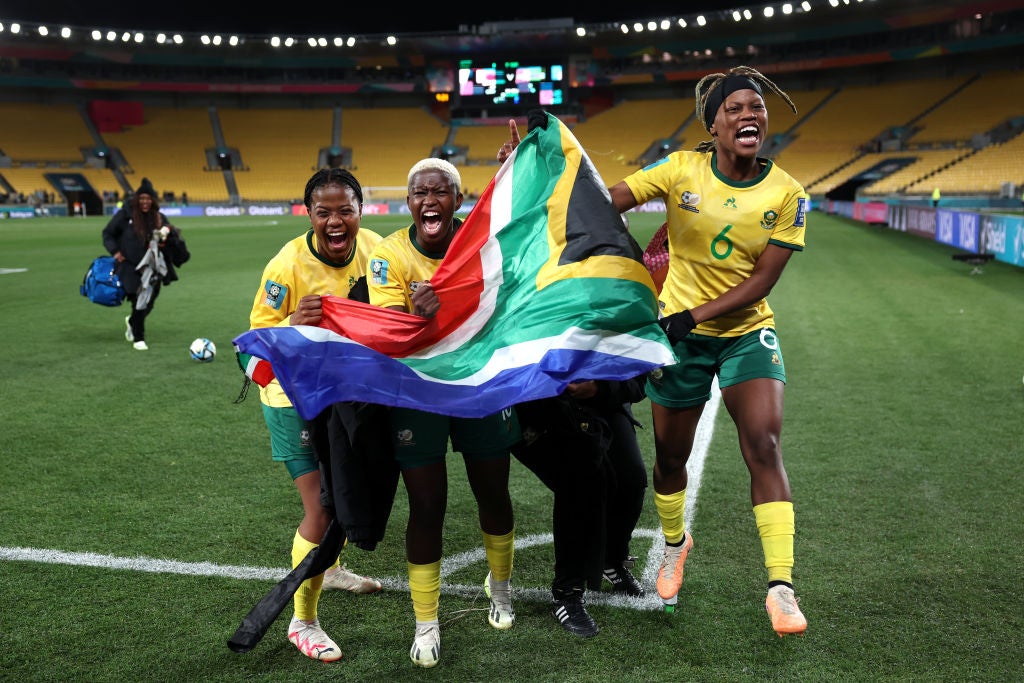
And yet all of these teams overachieved, all got through the groups. All offered shocks that became less surprising as the tournament went on, instead further firing the drama and entertainment. This was the immense potential that Putellas was arguing for.
This is the potential of the Women’s World Cup as a whole, and the wider game.
Through that, Fifa’s disputed decision to expand the tournament to 32 teams has been completely vindicated.
Far from the mismatches that were feared, the World Cup was thrillingly unpredictable, featuring at least four of the biggest upsets in women’s football history. That also directly aided the development of and support for the games in many involved countries.
A generation of children have new players to emulate. Many countries become caught up in what can only be described as World Cup fever. The cliche has never been more suitable. This creates a buzz, that fosters a spread of the sport, encouraging investment.
This was most visible in the host nation. The Australian team were so popular that their semi-final against England became the most watched event in the country’s history, bringing a series of broken records to a peak. That is simply incredible in a sporting culture where Australian Rules Football dominates everything and football had been the fourth sport. Sam Kerr, eventually responsible for one of the moment’s of the World Cup with that jubilant goal against England, is now Australia’s biggest sports star by far.
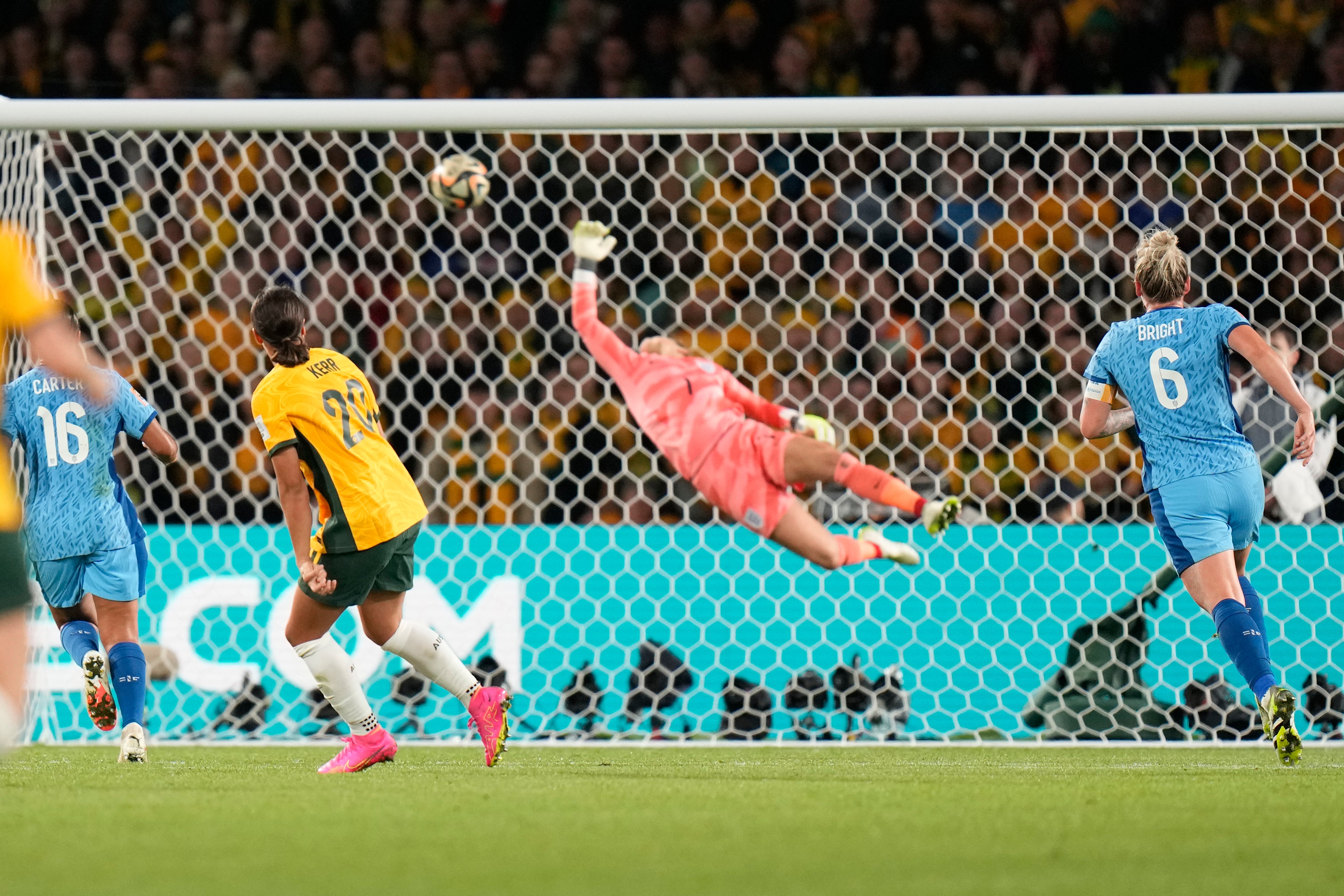
And, as a classic piece of anecdotal evidence, this very World Cup review is being written in a cafe on the morning after the final surrounded by one group of people discussing England’s tactics in the match, and another repeatedly mentioning Kerr. They and many others are enjoying what England had last summer, and this tournament only deepened.
Gianni Infantino did have one statement that was absolutely correct, amid many of his more eyebrow-raising statements.
“This Fifa Women’s World Cup has been truly transformational, not only in Australia and New Zealand but all over the world.”
Nobody can dispute any of that. There is one follow-on from that point, though, that will bring a bit more pushback.
As some federation heads confided privately - something which says enough in itself - Infantino’s Fifa do deserve credit for investment in the women’s game.
The body’s president may come out with ludicrous words, but some of the actions have had serious effect. Fifa have pushed broadcasters to invest more, raising the expectations, and ensuring more money comes in. They have also used the immense resources earned from the men’s game to financially support this, gradually ensuring - in other words of Infantino’s - that it broke even. The announcement on bonus payments was meanwhile a game-changer in so many senses, putting further responsibility on individual federations.
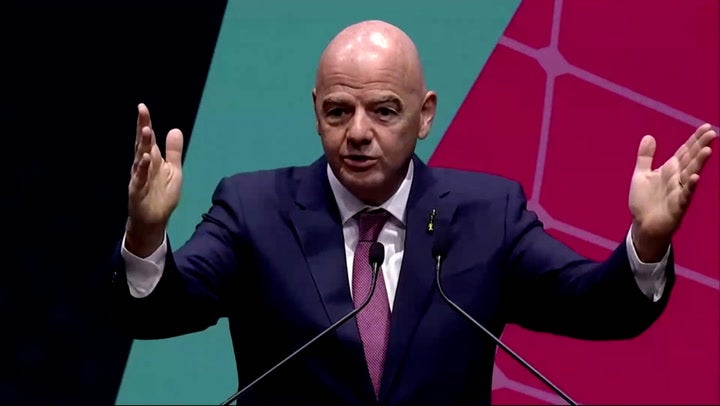
There are two wider points to be made from this. The first is about the essential spread of wealth that global football requires, both from the men’s game to the women’s and from western Europe to the rest of the world. This World Cup influences that.
It says much that this landmark tournament came amid a growing crisis in multi-sport events, where the Commonwealth Games and Summer Youth Olympics have been struggling for countries to stage them. The Summer Olympics will surely soon find they can’t get hosts as readily as the Women’s World Cup, although the number of flights required for this tournament has already prompted discussion about the carbon footprint of football competitions. Many countries are completely willing to take that cost, as other sports are finding to their own cost.
A direct factor in this has been how the monster that men’s football has become - centred on a few super clubs - is cannibalising the rest of sport, to go with how it cannibalises the rest of football. Absolutely nothing can match its spread over the planet.
It makes it all the more important that its obscene resources are diverted elsewhere at key points. The other side to that, however, is what the women’s game can become. The sport is at an excitingly formative change, but also a defining one. The wrong step now could change its entire future.
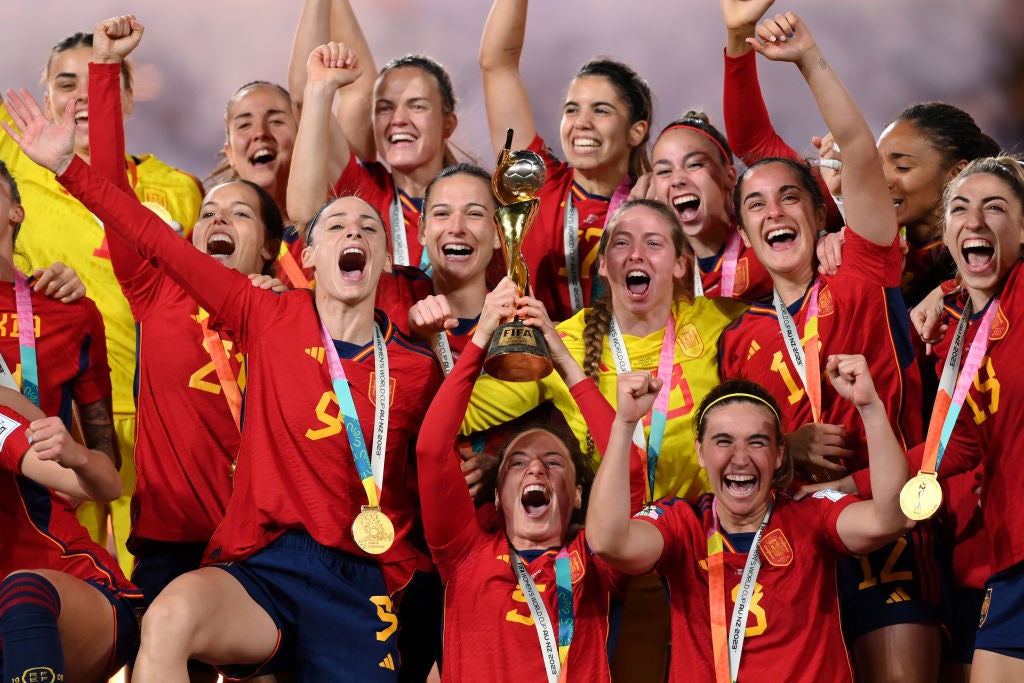
While super-clubs like Chelsea and Barcelona have already changed the recent past, and state-owned clubs like Manchester City and Newcastle United have already exerted the influence, the sport feels in a happier place because it has very few of the more corrosive elements of the men’s game.
It isn’t so completely dictated by the business side. That means the financial figures aren’t as obscene. There aren’t yet the influences of political projects like the Saudi Pro League, in part because there isn’t yet the popularity or the money. That means there isn’t anywhere close to the aggression of the men’s game, either online or in the stands. It is a much more inclusive space. It can be a much more democratic and meritocratic space, with more competitive balance, more connection to communities.This is why, in England, Karen Carney’s review of domestic football is so important.
That leads into the second point, which is where Infantino’s other comments about how women need to “just push the doors” were so controversial.
So much of this Women’s World Cup was about where power still lies. So many of the financial disputes involved federations led by men, or situations that wouldn’t be tolerated by their men’s teams. It was almost a fitting coda in its own grim way that Spain’s victory partly resulted in a controversy over the behaviour of federation chief Luis Rubiales.
Even the greatest outpouring of joy must be offset by internal issues.
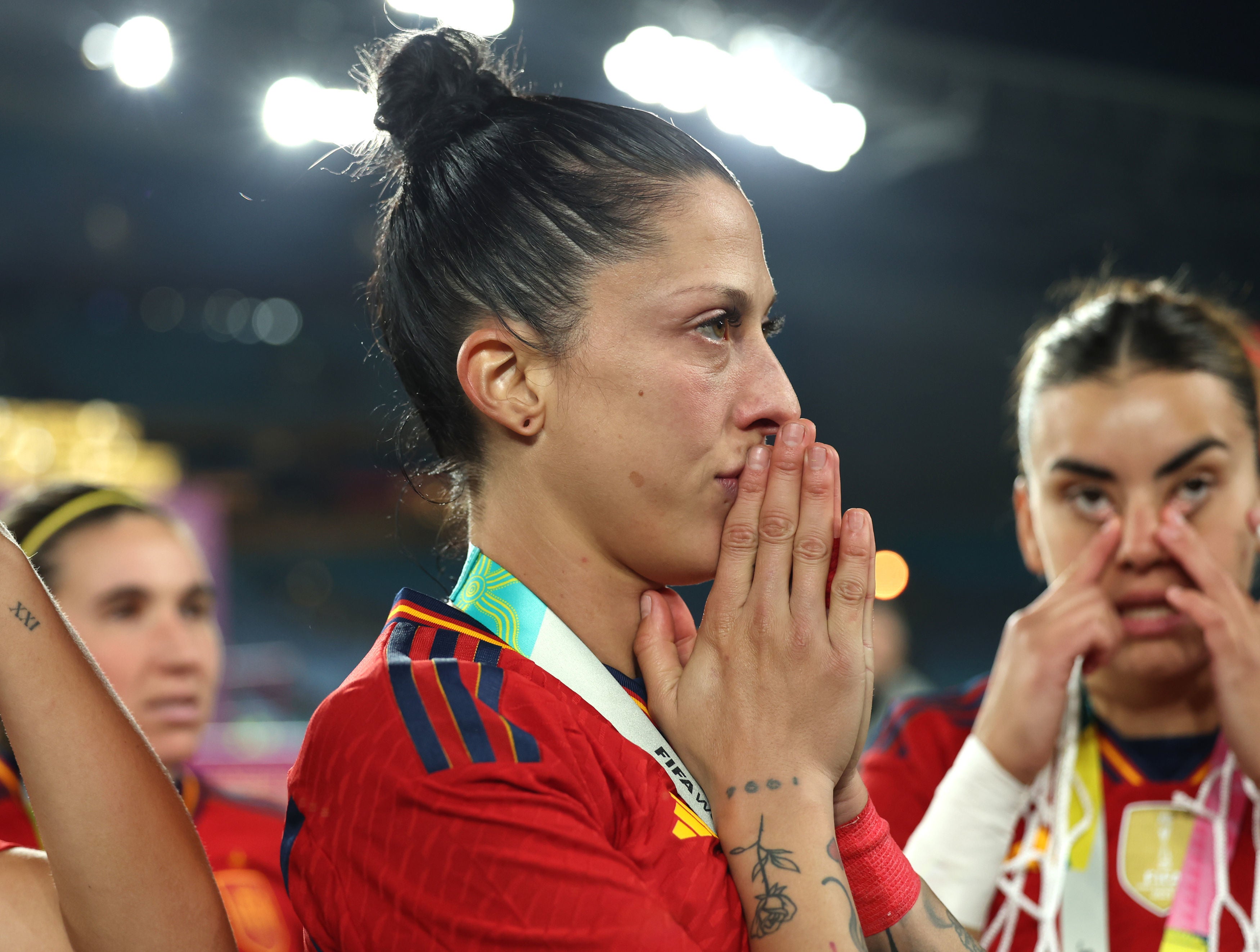
Itt was meanwhile shameful that the Mason Greenwood story impinged on this World Cup in any way. It felt distasteful that Sarina Wiegman’s success with England was put in the context of whether she could succeed Gareth Southgate, with this dominating headlines two days before the biggest match in the history of the women’s national team.
This was what Putellas was getting at. With fair support, the women’s game can grow sustainably from within. This World Cup was the best possible example of that. It was almost the best of what you can have from a World Cup, involving all the elements that make a football tournament: sensational moments, engaging storylines, unpredictable matches, great drama, worthy champions and a true legacy.
The final words perhaps belong to the match-winner, all the more so because of the personal tragedy she has suffered amid a professional peak, as she was told of the death of her father within moments of the final whistle.
“Women’s football is here to stay,” Olga shouted, “and to do something huge.”



Join our commenting forum
Join thought-provoking conversations, follow other Independent readers and see their replies
Comments